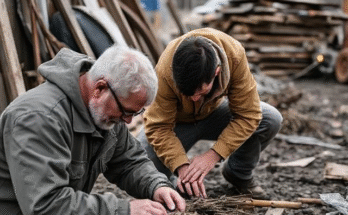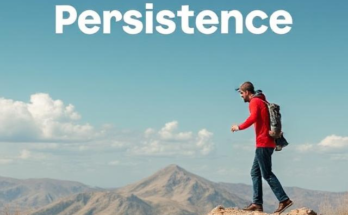Introduction
In our fast paced, goal driven lives, it’s easy to get so focused on what we don’t have that we forget to appreciate what we do. We find ourselves striving for the next achievement, the next possession, or the next relationship, often overlooking the every things that bring us true happiness and fulfillment.
But if there’s one lesson life consistently teaches us, it’s that everything is fleeting. Relationships, health, success, and even the everyday simplicity of a routine can disappear or change, sometimes when we least expect it.
But we take it for granted when the good things present in our lives; then value and impact get lost. Invaluable lives are built on what we have today, and it prevents the bitterness in a wish to have valued what we had before it changed or was lost.
Why We Overlook What We Have
We are trained for beyond, till the limitation wrest from us what we have, and we fail to see what lies beneath us. This constant desire for more—a better paycheck, a larger mortgage, a higher level of prestige—only works to feed a mechanism that provides short-lived gratification.
As soon as we reach that thing we thought we wanted, the thrill is gone and we focus on something else. We believe, through the lens of the hedonic treadmill, that we need, and that we would be happier if we had, everything that others have and which we still don’t possess, so we begin this process, that crowd always repeating itself.
But in reality, real fulfillment does not come from getting more, rather it comes from being grateful for what you already possess. Instead of pursuing a moving target like happiness, taking a moment to thank ourselves for what we have can engender greater and longer lasting happiness.
Its only when we realize how we can move from focusing on what we lack toward all that we have – love, experiences and small pleasures – that we transcend the cycle of wanting. Learning how to be content with where we are enables us to jump off the hamster wheel and live a more fulfilling, meaningful life.
Examples Of Appreciating What We Have
Relationships:
Very often, relationships are taken for granted. People feel their loved ones would always be around in one form or another family, friends or even a significant other. When the relationship turns cold or when someone is no longer around. Then do we understand the significance of every moments which was overlooked by us.
Take for instance, the person who always felt that one’s parents were too much in their life. Maybe over time they grew irritated with the constant check-ins and advice. When those calls stop, or when life takes their loved one away, they may yearn for days when they felt that closeness. Lesson learned, Spend time with those around you, listen to them, and let them know they are appreciated. Small gestures like saying “thank you,” spending good time, or even just being there can deepen your connections and make you more grateful for the love that surrounds you.
Health
We often do not think about our health until it starts going downhill. It is not hard to try to go beyond the line, well beyond the warnings of fatigue, stress or even minor illness. The fragility of health sometimes doesn’t hit until after a scare — an unexpected diagnosis, a sudden illness, a moment of awakening that our body is not as invincible as we thought. As you may know from experience, many people wait until the point of physical and/or mental breakdown to make the necessary changes, which should have happened long before.
Consider the overachieving careergoer who climbs the corporate ladder at the cost of his own sleep, good nutrition, and exercise. When their health begins to fail, they realize no amount of achievement can provide what good health can do. Fact is: health is wealth. It’s much better to be proactive about it because, at some point in life, you’re going to be slapped in the face with the reality of how important it is, and you can only hope that unfortunate wake-up call won’t happen to you.
However, a lot of people are still unable to lead a balanced lifestyle, even knowing this. Self-care is often viewed as a luxury instead of a necessity in the busy-ness of life today. But caring about health does not mean changing everything overnight. Little things done often by zoning into a healthy diet, regular movement, and sleep can add up to produce big health gains. These seemingly insignificant changes create resilience, mitigating potential big health problems in the future.
Moreover, mental health is as important as physical health. What I mean is the stress, anxiety and burnout we all struggle with and the most common of which we ignored until it became apparent in other forms. Making time for relaxation and mindfulness, and for meaningful social connections improve both mind and body. In the end, health is an investment. It takes focus and commitment. Because we are at a decisive stage where the choices we make now determine the state of our future — one where we will actually be able to enjoy the fruits of our labor instead of dealing with ultimately avoidable health maladies.

How to Practice Appreciation
Daily Reflection: Take a couple of minutes each day to reflect on what you’re grateful for. This may be for a person, a moment in life, or a great-small accomplishment.
Mindfulness: This is achieved by being more aware of what is happening around you, you then learn to appreciate the present moment in those things. It could be something as minor as pausing from whatever busy schedule,
Appreciate: Let others know that you value them. Say thanks, send a note, or pay a compliment. This strengthens relationships and helps you remember what a treasure others may bring into your life.
Limit Comparisons: Comparing yourself to people will truly be one of the hard things not to feel unsatisfied about. Why don’t you try to focus on your journey and achievements? Everyone has their problems; the things you take for granted might just be those others strive for.
Conclusion:
Appreciation for what one already possesses, before it is taken away, holds no denial of ambition nor settling for less. It’s a question of balance in the drive for more with gratitude for what’s already here. In that way, one can be more satisfied and happy, with each moment richer and the relationships one experiences being imbued with more meaning.
The beauty of life lies in its uncertainty. By embracing all that we have, we can find our peace in the present and live with fewer regrets, knowing we cherished those people, moments, and experiences that enriched our journey.



